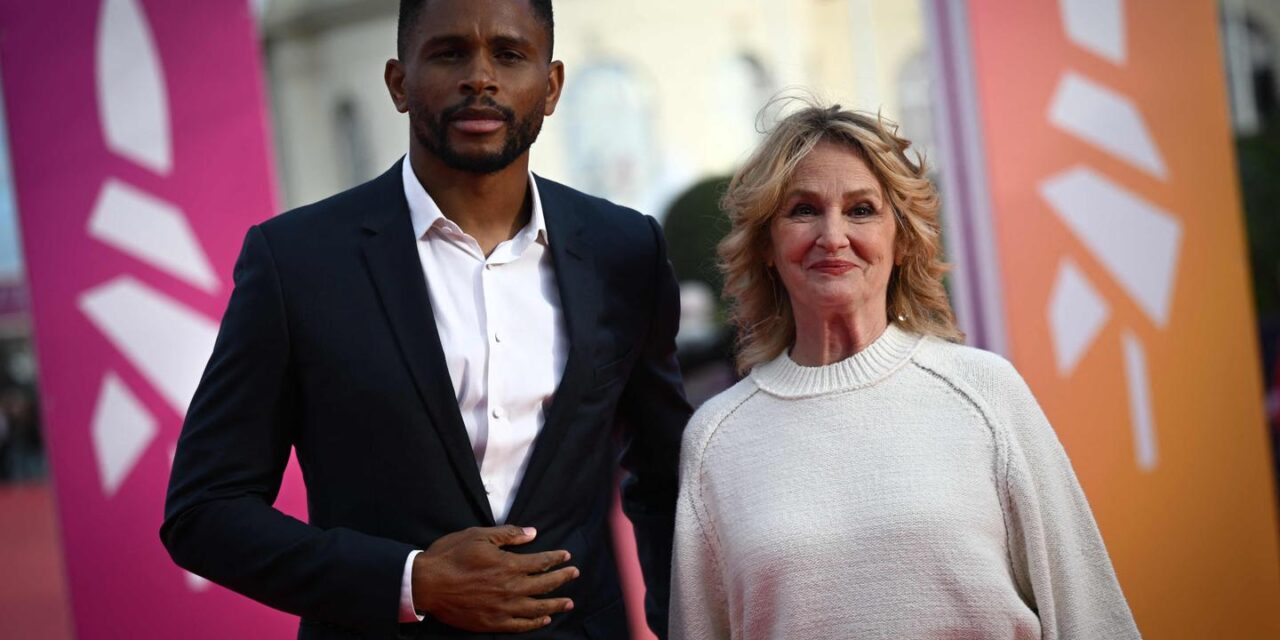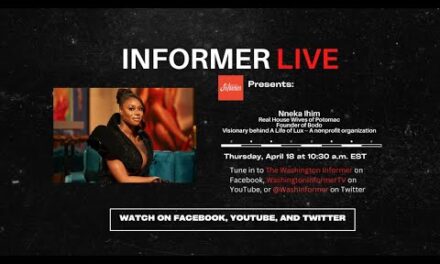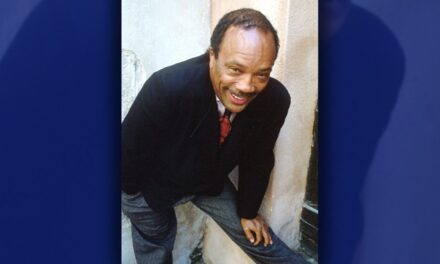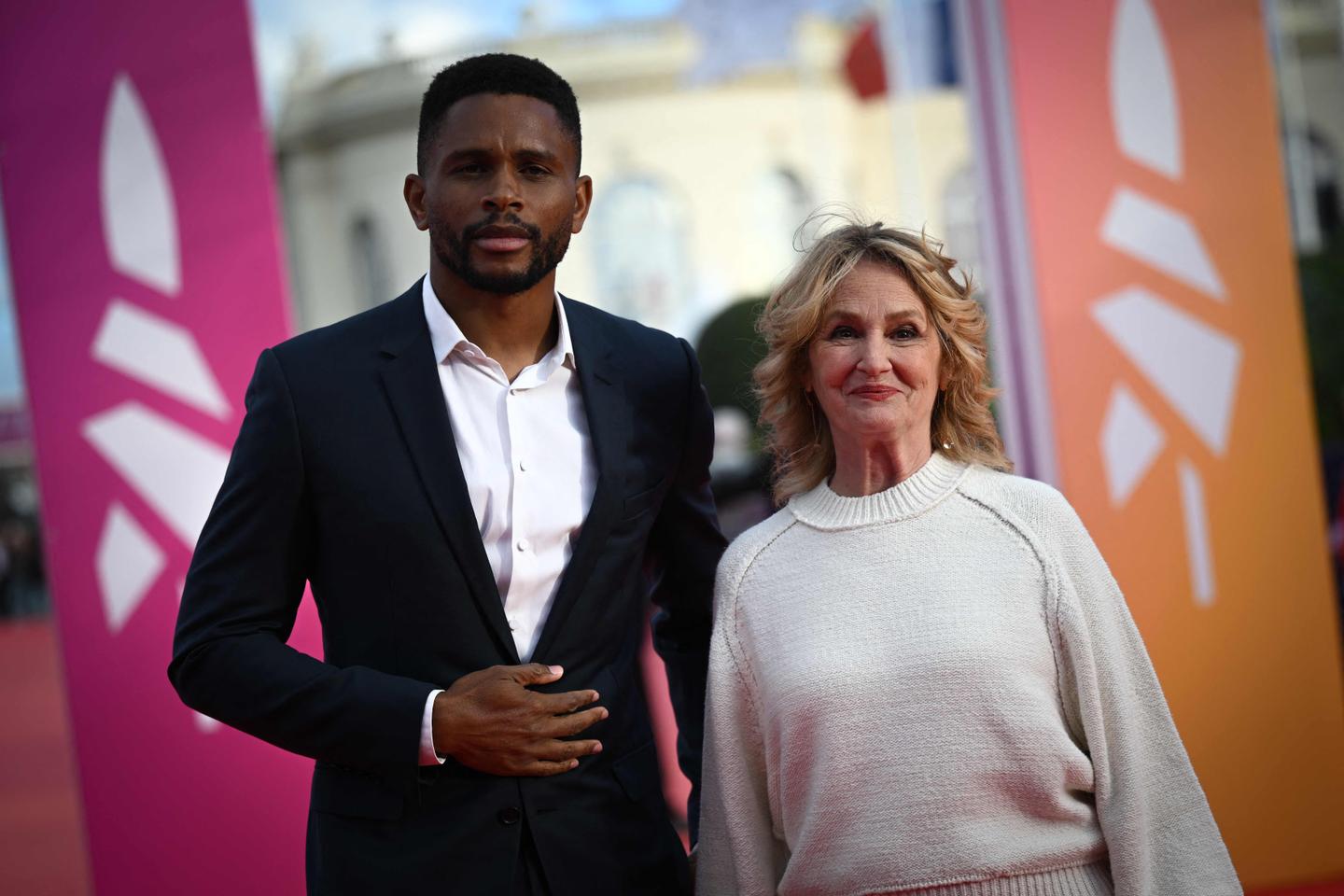

 American director and actor Nnamdi Asomugha (left) and actress Melissa Leo for the film ‘The Knife,’ at the 50th Deauville American Film Festival on September 11, 2024. LOU BENOIST/AFP
American director and actor Nnamdi Asomugha (left) and actress Melissa Leo for the film ‘The Knife,’ at the 50th Deauville American Film Festival on September 11, 2024. LOU BENOIST/AFP
Long before it began, the 50th edition of the Deauville American Film Festival was making headlines. Following the ousting of its director Bruno Barde for alleged sexual harassment, the festival’s reins were handed over to his close collaborator Aude Hesbert, who had to deal with a series of controversies after the restructuring of the jury. In the screening rooms as well, there was a clear and striking transfer of power between two eras of American cinema – its past, proud, triumphant, predominantly male and white and a present obsessed with the issue of minority representation – determined to swing the pendulum in the other direction.
At Cinéma Morny, you could speed through American cinema history with 50 landmark films, featuring everything from Rambo (Ted Kotcheff, 1982) to D. W. Griffith’s Intolerance (1916), via Do the Right Thing (Spike Lee, 1989) and Gone with the Wind (1939, Victor Fleming). Next door, a full retrospective of James Gray, who came to give a master class and inaugurate – as tradition dictates – his beach cabin.
Historical and contemporary
In the small Jewish world of New York that the filmmaker has constantly explored, his latest film, Armageddon Time (2022), saw the emergence of pure otherness, a reversal of perspective. Suddenly, the Grayian microcosm was observed from the vantage point of the Black condition. Institutional racism infiltrated to the point of destroying a childhood friendship. Armageddon Time in some ways acts as a pivotal work, bridging the historical and contemporary elements of the programming, with the latter unfolding in the official competition.
Read more Subscribers only Deauville American Film Festival forced into a post-#MeToo transformation
Out of 14 independent films, five share a common theme: They focused on African American characters who were no longer perceived as “other” through a white gaze but were captured for who they were, in the depths of their intimacy. The same task elicited varied responses, ranging from naivety to utter pessimism.
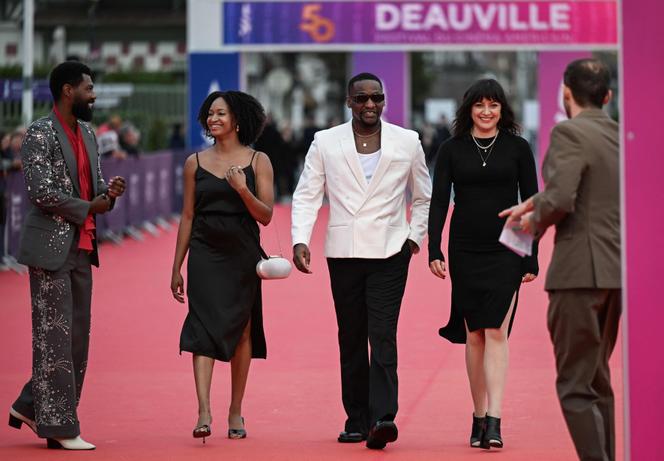
 American actor Will Catlett, American producer Kiah Clingman, American director David Fortune and American producer Kristen Uno for the film ‘Color Book’ at the 50th Deauville American Film Festival in Deauville, France, September 10, 2024. LOU BENOIST/AFP
American actor Will Catlett, American producer Kiah Clingman, American director David Fortune and American producer Kristen Uno for the film ‘Color Book’ at the 50th Deauville American Film Festival in Deauville, France, September 10, 2024. LOU BENOIST/AFP
In Color Book, director David Fortune films a strikingly simple story: A Black father, recently widowed, caring alone for his little boy with Down syndrome. Amid daily struggles and paternal epiphanies, the film revolves around a delicate goal: a journey across the city of Atlanta so that the son can attend his first baseball game. Here, disability takes precedence over racial issues, but everything is suffused with a sense of kindness and surmountable difficulties. Captured in a soft, almost drowsy black and white, the film falls into the trap of thinking that to love its characters is to make them exemplary, angelic – and soon, rather mawkish.
You have 49.15% of this article left to read. The rest is for subscribers only.
